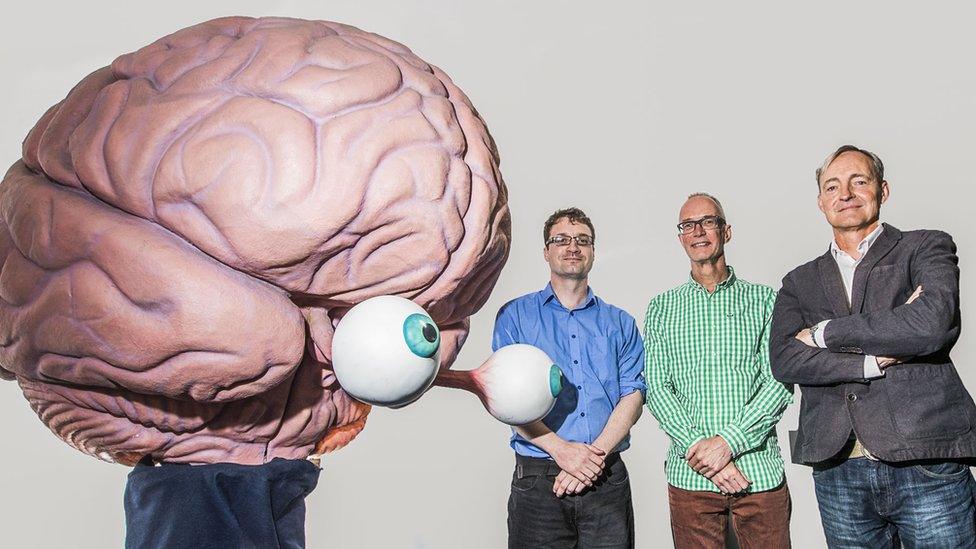Bangor Uni PC games research to help Parkinson's treatment
- Published

Aaron Pritchard, from BCUHB, with Dr Charles Leek and Dr Rudi Coetzer, both of Bangor University
Research into how computer games stimulate the brain could be used to help treat Parkinson's disease.
The study looked at the effects of touch screen "spatial reasoning games" on the part of the brain used to control movement.
Early research involving 16 people with Parkinson's showed it could help stimulate impaired areas of the brain and improve motor function.
The team, led by Bangor University, has received 拢33,000 for a second study.
Researchers at the university's School of Psychology have been working with Parkinson's experts at Betsi Cadwaladr University Health Board (BCUHB) and the Walton Centre in Liverpool.
The study required users to perform tasks like using mental imagery to rearrange shapes to fit a physical space.
The new funding, from the BCUHB Pathway to Portfolio Funding Award, will see 60 people with Parkinson's take part in another study which will explore further benefits of computer gaming.
'Emerging technologies'
Dr Charles Leek, professor of cognitive neuroscience at the university, said their research hoped to get parts of the brain "working more efficiently".
"These kinds of tests are incredibly simple and involve people making judgements about visual spatial relationships," he said.
"They involve the brain doing quick calculations of the dimensions of an object from a different orientation and how it will fit into the space provided."
Parkinson's is a degenerative disease of the nervous system which can cause muscle rigidity, tremor, poor balance and slow movement.
Claire Bale, head of research communications and engagement at Parkinson's UK, said: "So far, there is no conclusive evidence that brain stimulating computer programmes can be used as an effective non-drug therapy for people with Parkinson's.
"But we are keen to see what potential there is by using emerging technologies, such as brain training, to improve symptoms of the condition."
- Published11 April 2017
- Published23 December 2016
- Published2 December 2016
- Published18 August 2016